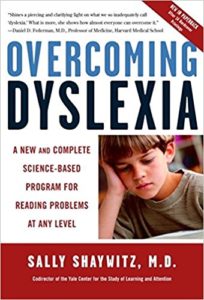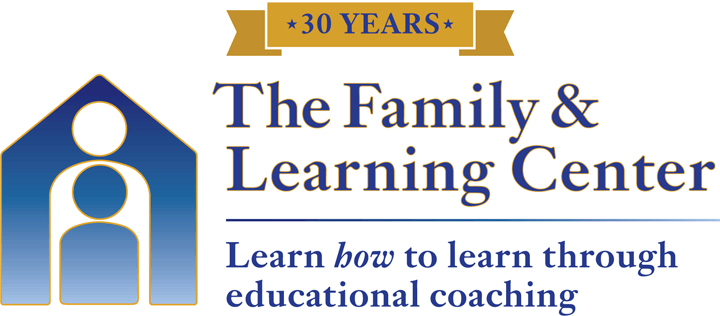
Overcoming Dyslexia, by Dr. Sally Shaywitz, has been the general guide to dyslexia for many years. Whether your child was recently diagnosed with dyslexia, or you are researching intervention options, Overcoming Dyslexia is an excellent starting point.
Shaywitz explains the nature of dyslexia and its challenges on a physical and neurological level. She then provides guides, advice, and resources for parents and adult dyslexics who are seeking remediation programs.
While the book does provide information for adult dyslexics seeking treatment, the bulk of it targets parents of young dyslexics. The personal stories shared throughout the text are optimistic and encouraging. These stories show that dyslexia can be overcome and reading difficulties don’t have to hamper bright futures.
Shaywitz begins by defining dyslexia and its challenges.
Dyslexia is not a problem with intelligence or motivation, it is a neurological difference! Because it is a language disorder, dyslexia manifests itself primarily as difficulties with reading.
The book devotes plenty of consideration on identifying the signs of dyslexia. In toddler-to-preschool aged children, key signs are a delay in speaking, persistent “baby talk” that continues into 4 to 6 years of age, and insensitivity to rhyme. Dyslexic children may not be able to recite nursery rhymes or confuse the similar sounding words.
As the child grows older, the signs of dyslexia become more clear. Children may have:
- Trouble finding the words they want to say
- Problems with word recall and formation, and speaking under pressure
- Issues with handwriting
- Difficulties with reading, including comprehension, little to no enjoyment of reading, identifying main ideas, making predictions, drawing inferences, and making summaries.
Shaywitz provides many suggestions for parents to help their dyslexic child. This includes:
- Building a supportive home environment
- Finding a good remediation program
- Choosing schools
- Advocating for your child
Parents can encourage their children to become good readers by building strong foundations in phonics skills and by reading with and to them. Parents can also encourage learning by looking up words, categorizing words, using new vocabulary, predicting stories before reading, and asking questions while reading. In addition, questions that encourage reading fluency are “who, what, when, where, and why” questions.
Shaywitz also gives examples of cases using effective remediation programs, as well as the features of successful programs parents should look for. She emphasizes that programs should be intense, contain high-quality instruction, and be of a sufficient duration. Shaywitz then gives suggestions and tools to become an effective advocate for a child, arming parents with knowledge against misconceptions on accommodations, schools, and specialized reading programs.
Check out a copy of Overcoming Dyslexia in our Lending Library.
